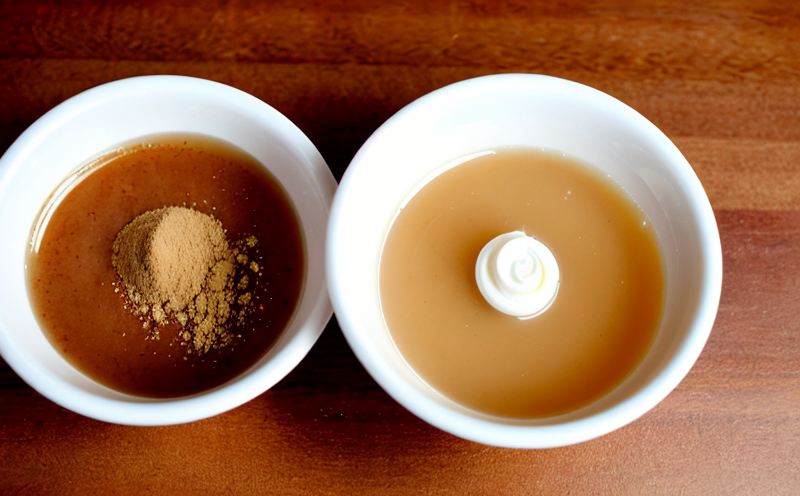CFR 21 Sweetener Safety Testing in Foods
The Code of Federal Regulations (CFR) Title 21 specifically addresses food safety and quality. Within this context, ensuring that sweeteners used in foods are safe for consumption is paramount. This service provides comprehensive testing to adhere to the stringent standards outlined by CFR 21.
Compliance with these regulations not only safeguards public health but also builds consumer trust. The process involves detailed analysis of various sweetener compounds, including their chemical structure, purity, and potential interactions within food products. This thorough examination ensures that each sweetener meets the criteria set forth by the regulatory bodies.
The scope of our testing includes not only the identification of individual sweeteners but also their cumulative effect when present in multiple ingredients. This holistic approach allows us to provide a comprehensive safety profile, which is crucial for product development and quality assurance.
We utilize state-of-the-art analytical techniques such as High Performance Liquid Chromatography (HPLC), Gas Chromatography-Mass Spectrometry (GC-MS), and Fourier Transform Infrared Spectroscopy (FTIR). These instruments are chosen based on their precision, reliability, and ability to detect even trace amounts of contaminants or impurities.
The testing procedure begins with the receipt of samples from clients. Each sample undergoes a rigorous pre-screening process where we document its origin, composition, and intended use. This information is critical for tailoring our tests to meet specific regulatory requirements.
Once the sample is received, it goes through an extraction phase using solvents appropriate for the type of sweetener being tested. Following extraction, the sample undergoes purification steps aimed at isolating the target compounds from other components present in the food matrix.
The purified extracts are then analyzed via HPLC or GC-MS depending on the nature of the sweetener and the desired level of resolution. For certain complex mixtures, FTIR might be employed to identify functional groups that could indicate potential safety issues.
Results from these analyses are meticulously recorded and compared against established standards provided by regulatory bodies like CFR 21. Any deviations from acceptable limits trigger further investigation into possible sources of contamination or unintended chemical reactions during processing.
We provide detailed reports summarizing our findings, highlighting any areas where improvements can be made to enhance the safety profile of the product. These insights are invaluable for R&D teams working on new formulations as well as quality assurance departments responsible for maintaining consistent product quality across batches.
Our commitment to excellence extends beyond just meeting regulatory requirements; we strive to exceed them by offering innovative solutions that address emerging trends in sweetener technology while ensuring long-term sustainability practices are integrated into our testing protocols.
International Acceptance and Recognition
The standards set forth by CFR 21 have gained international recognition due to their stringent requirements for food safety. Many countries around the world adopt these guidelines or similar ones based on ISO (International Organization for Standardization) and IEC (International Electrotechnical Commission).
Our laboratory adheres strictly to these regulations, ensuring that all tests conducted are fully compliant with international standards. This consistency builds trust among global clients who rely on our services for their market expansion efforts.
By aligning ourselves with such high benchmarks, we contribute positively towards establishing uniform quality controls across industries dealing with food products containing sweeteners. Our proficiency in this area makes us a preferred choice among multinational corporations looking to maintain consistent standards worldwide.
Competitive Advantage and Market Impact
Ensuring compliance with CFR 21 sweetener safety testing not only meets regulatory demands but also provides significant competitive advantages. In today’s marketplace, consumers are increasingly concerned about the ingredients used in food products.
Achieving this level of assurance helps companies differentiate themselves by demonstrating a strong commitment to health and safety standards. It enhances brand reputation and fosters customer loyalty, which are crucial factors influencing purchasing decisions.
Moreover, compliance with these regulations opens doors to new markets where strict food safety laws are enforced. Companies that can prove their adherence to such stringent protocols often find greater acceptance in international trade negotiations.
The ability to deliver accurate and reliable test results promptly is another key factor contributing to our success. Timely delivery ensures that clients have the necessary information at crucial stages of product development or when responding to regulatory inquiries.
Use Cases and Application Examples
- New Product Development: Ensuring new sweetener formulations comply with safety regulations before market launch.
- Ingredient Supplier Verification: Validating the purity and safety of raw materials supplied by third-party vendors.
- R&D Innovation: Analyzing experimental sweetener blends to identify potential improvements or hazards.
- Regulatory Compliance: Providing documentation required for submission to regulatory authorities during audits or inspections.
- Quality Assurance: Monitoring ongoing production processes to ensure consistency and adherence to safety standards.
- Consumer Health Concerns: Addressing specific customer requests regarding the safety of certain sweeteners in their products.





